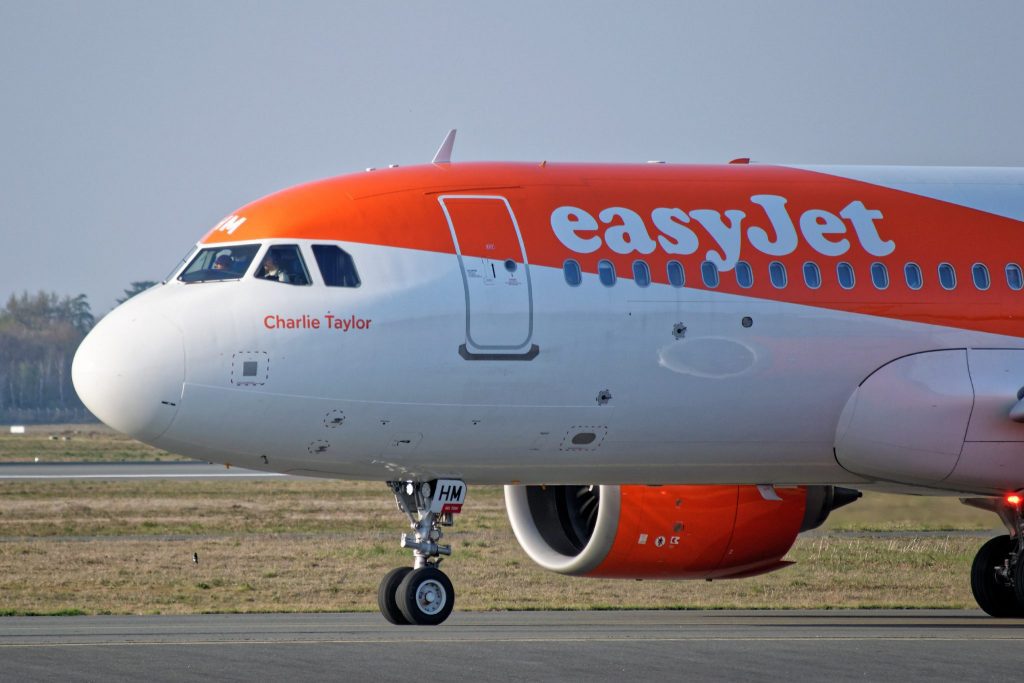Skift Take
The growth of low-cost carriers has helped make travel more accessible but it has come at an environmental cost. Airlines like EasyJet are hoping that electric technology will one day act as a savior, but it's hard to imagine battery-powered commercial jets ever flying across the Atlantic.
EasyJet CEO Johan Lundgren believes low-cost airlines should not be singled out for criticism over their environmental impact, arguing that they were much more efficient than their legacy rivals.
The argument goes that budget short-haul carriers operate unnecessary routes and stimulate demand through low fares, something Lundgren disagrees with.
“I think it’s being on the completely wrong side of history to argue that. It makes me upset. Here’s the point: You can turn back the clock when flying was for privileged people, when flying was for the people who could afford it, when the choices were limited. That kind of sets a scene of what the argument wants to drive it back to,” Lundgren told an audience at the World Aviation Festival in London on Thursday.
“If you’re looking at the efficiency or the models that [are] out there today, it’s actually the low-cost model [that] has lower carbon emissions per passenger…than a lot of the legacy carriers that [are] out there…arguing this point.”
Lundgren might be technically correct that low-cost carriers are more efficient on a per mile basis — after all they tend to have newer planes — but in absolute terms they tend to have a bigger overall footprint.
Earlier this year Ryanair made it into a list of the top ten carbon emitters in Europe and research from a Brussels-based NGO Transport & Environment put EasyJet at number one in the UK.
Long-Haul Problem
While Lundgren sees political involvement as a bad idea, he is a big fan of the potential of battery technology to disrupt the aviation industry. Under predecessor Carolyn McCall, EasyJet announced a partnership with manufacturer Wright Electric and it wants to start flying electric planes on some routes by 2030.
Lundgren said that when he took the EasyJet job in December 2017, there was plenty of skepticism over potential solutions to the airline industry’s dependence on fossil fuels, but now “everybody agrees that hybrid technology and electric planes will happen.”
Not everybody is, however, as confident — at east on the potential for innovation to help other areas of the airline industry.
Sharing a stage with Lundgren was Emirates President Tim Clark who explained the potential practical difficulties of using battery-powered planes for long-haul flights (if indeed this type of technology was ever developed).
Clark said that Emirates had around three medical diversions a week where aircraft had to land at unfamiliar airports, sometime outside of the company’s network. Would the airline, for example, be able to get a replacement battery to somewhere like Murmansk in Russia?
“I’m not pessimistic, I’m just saying be careful about overpromising,” he said.
Even EasyJet’s target date of 2030 is problematic. The UN Intergovernmental Panel on Climate Change said that the world only has until then to limit the impact of climate change.
In the mean time the airline industry is expected to keep growing, with few immediate ways — aside from efficiency improvements and controversial carbon offsets —available to reduce environmental damage.
The Daily Newsletter
Our daily coverage of the global travel industry. Written by editors and analysts from across Skift’s brands.
Have a confidential tip for Skift? Get in touch
Tags: carbon emissions, climate change, easyjet, emirates air, environment
Photo credit: An EasyJet A320. The carrier's CEO is backing the potential of electric planes. Dylan Agbagni (CC0) / Flickr
